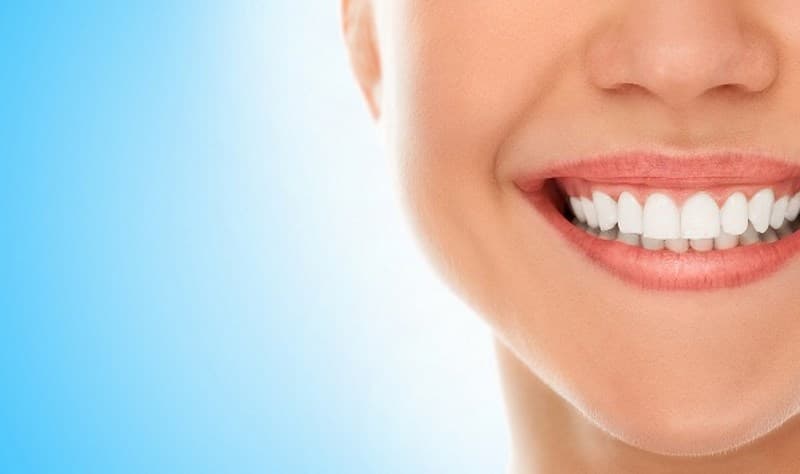Protecting Our Teeth From Dental Erosion

Research from Kings College London, published in the British Dental Journal, has looked at the diets of 300 people. It concludes that many drinks and snacks are dangerously wearing away the enamel on our teeth.
The Research
The research found that certain drinks and snacks, including things like fruit teas, contain acid which harms the enamel covering on our teeth. The issue also seems to be that it is also more dangerous to have these drinks and snacks in-between meals and to graze on them. So if you continuously sip a fruit tea for example, the risk of tooth erosion is greater than if you drink it outright at a meal time.
The research revealed that people who for example had a water with lemon twice a day in between meals, were more than 11 times more likely to have tooth erosion. This figure was however halved when the drinks were only taken at meal times. This is because when you are eating a meal the mouth produces saliva which is alkaline and therefore helps to protect the food from the acid content in the drink. Another piece of advice from the research was that eating food like cheese (cheese is a neutralising food) after drinking an acidic drink ,was also beneficial.
The research also shows that most children and adolescents in the UK have tooth surface loss and that this is a major cause of tooth damage in older generations.
What Is Tooth Erosion?
Tooth erosion occurs when the hard substance on the tooth is being reduced by chemical processes that do not involve bacterial action. It should not be confused with tooth decay which is caused by eating and drinking excessive sugar.
Drinks That Are Deemed Acidic.
These include:
- Alcohol
- Fruit teas
- Flavoured water
- Squashes
- Diet drinks
- Sweetened drinks
Drinks that are better for your teeth include water, tea, coffee, sparkling water.
Foods That Can Attack Enamel
Fruit can seriously attack our teeth but we are also told to eat more fruit, so what the best way? Fruits from the citrus family including oranges, lemons, limes and even berries can be harmful to our enamel. So the advice is to eat them as they contain much that is good for us but try to eat them with a meal and not as a snack.
Vinegar can also cause enamel erosion, it is also a food substance that you will find in lots of foods including salad dressings, sauces, crisps, and pickles. So the advice again is not to snack on foods in-between meals that contain high levels of vinegar.
What Action Can We Take To Prevent Tooth Erosion?
The key advice is to watch what you eat and drink. Reduce drinks that are acidic and foods that also contain high levels of acid. If you do want to eat and drink highly acidic foods then eat or drink them at meal times when your saliva can help to neutralise them. Avoid snacking on acidic foods.
Brush your teeth at least twice a day. Use a fluoride toothpaste and use a mouthwash. Wait at least an hour before brushing your teeth if you have consumed acidic foods as this will allow the teeth to remineralise after the exposure to acid. If you are drinking an acidic drink either use straw which will protect the juice from overtly touching your teeth and swallow quickly again to minimalize the time the acid stays in your mouth.
See a dentist every 6 months if you can. Some patients may need to be seen more or less frequently but consult your dentist and they will advise.
You Might Like
Is Flossing Really Necessary? 3 Best Dental Hygiene Tips From A Dentist
How To Prevent Teeth Cavities in Children
Mums and dads. Here’s what’s giving your children cavities and here are some ways in which you can prevent it.How Do You Best Protect Your Childrens Teeth?
Levels of tooth decay have been on the rise in the UK, so how do we best protect our childrens teeth from decay?How Bad Are Energy Drinks For Children?
Energy drinks have been in the news a lot lately. But how bad are they for us and is there a place for them if you play a lot of sport and need an energy boost?Getting Tickets From Reseller Sites
It can be really frustrating to get tickets for your favourite performer with many shows selling out very quickly. So what are the top tips to getting tickets for the shows you really want? And what about reseller sites?
Useful Websites
- Black Swan Dental Spa
Black Swan Dental Spa offer cosmetic dentistry services to patients across Somerset. With a range of services, including dental implants, veneers, teeth whitening, teeth straightening and even Botox. - Harley Street Dental Studio
A London based cosmetic dentist offering a range of services including teeth whitening and dental impants - Appledore Dentist Practice
Private dentistry in Berkshire for cosmetics, implants, reconstruction, orthodontics. BUPA accredited, Micro - Air abrasion pain free dentistry, mercury free, cater for nervous patients - The Mill Hill Dental Surgery
Dental surgery for private and national health service (NHS) patients, offer fluoride treatment, fissure sealing, mouthguards, bleaching and cosmetic dentistry - Papa Mantra
Listening to their records is like that bit at the dentist's when the injection starts to work - Slateford Dental Care
Slateford Dental Care clinic based in Edinburgh. For all your cavities and fillings - we're here. Braces, teeth straightening, crowns, bridges and more. Look after your teeth. - Add Your Website Here